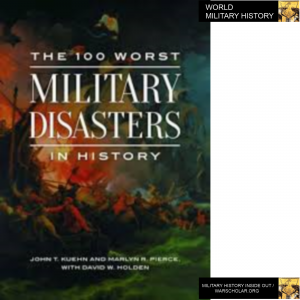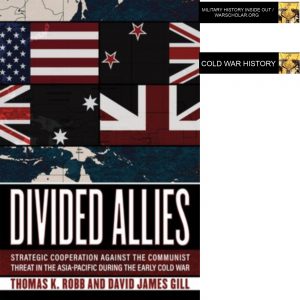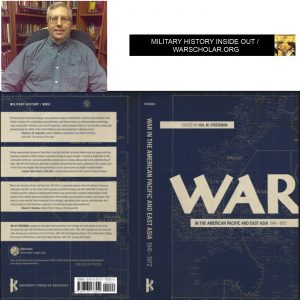Podcast: Play in new window | Download
Subscribe: RSS
 Check the book out here https://amzn.to/38GWtih
Check the book out here https://amzn.to/38GWtih
Dr. John Kuehn is a former US Naval officer and currently studies, teaches, and writes history at the United States Command and General Staff College. We spoke about his latest co-authored book on some of the world’s worst military disasters.
1:48 – John talks about how he developed the book on military disasters.
3:17 – John talks about the chronological format of the book.
4:48 – John talks about how they focused on both campaigns and wars.
10:11 – John talks about civil wars and revolution.
12:52 – John talks about technological impact on military campaigns.
15:39 – John talks about the impact of logistics on military disasters.
17:06 – John talks about pre-war preparation and its effects on wars.
22:36 – John talks about naval campaigns and disasters.
27:09 – John talks about the Russo-Japanese War and the Mexican-American War.
28:50 – John talks about the global, naval and air power focuses in the book. He also addresses contingencies in war.
33:03 – John talks about the vast amount of resources they had to study these wars and campaigns.
35:48 – John talks about the difficulty in determining casualties in war.
40:30 – John talks about the difficulty into coming to conclusions with some of the campaigns in the book.
47:45 – John discusses the end of the Pacific War.
50:10 – John expands on the Taping Rebellion.
1:03:14 – John can be found on twitter @jkuehn50 and by searching for “Hand Grenade of the Month” and H-war on google.
Links of interest
https://www.abc-clio.com/ABC-CLIOCorporate/product.aspx?pc=A5703C
For more “Military History Inside Out” please follow me at www.warscholar.org, on Facebook at warscholar, on twitter at Warscholar, on youtube at warscholar1945 and on Instagram @crisalvarezswarscholar. Or subscribe to the podcast on Apple Podcasts | Stitcher | Spotify
Guests: Dr. John Kuehn
Host: Cris Alvarez
Tags: military, history, military history, conflict, war, interview, non-fiction book, military history, fort leavenworth, command general staff college, ancient, medieval, global war on terror, iraqi freedom, Swedish Army, Mosul, American Revolution, French Revolution, English Civil War, Thirty Years’ War, Vietnam War, France, WWI, Germany, Russia, USMC, Japan, Pacific War, China, Salamis, iran-iraq war, Lepanto, Midway, athens, Texas Revolution, Taiping Rebellion, Meggido, Trafalgar, Tudor, York, washington naval conference
Check the book out here https://amzn.to/38GWtih
As an Amazon Associate I earn from qualifying purchases.


